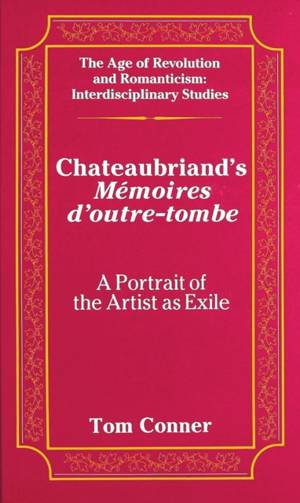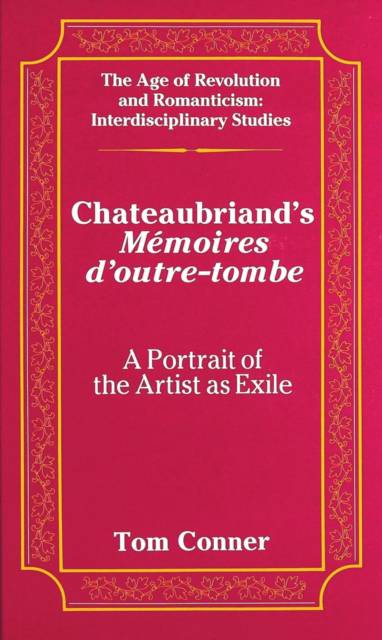
Je cadeautjes zeker op tijd in huis hebben voor de feestdagen? Kom langs in onze winkels en vind het perfecte geschenk!
- Afhalen na 1 uur in een winkel met voorraad
- Gratis thuislevering in België vanaf € 30
- Ruim aanbod met 7 miljoen producten
Je cadeautjes zeker op tijd in huis hebben voor de feestdagen? Kom langs in onze winkels en vind het perfecte geschenk!
- Afhalen na 1 uur in een winkel met voorraad
- Gratis thuislevering in België vanaf € 30
- Ruim aanbod met 7 miljoen producten
Zoeken
€ 67,45
+ 134 punten
Omschrijving
In this study, my primary concern will not be Chateaubriand, the man, but rather, the autobiographic persona in the Mémoires. The narrator of the Mémoires presents two sides of himself. On the one hand, there is what Proust might have, called the narrator's «moi social», on the other his «moi profond». Briefly my thesis is that Chateaubriand writes out of «exile», and I define this term not only in physical, political and social terms but also in moral and psychological terms. The Mémoires, therefore, are nothing short of a portrait of the artist in exile, where the narrator projects an imaginary, romantic self that seeks affirmation through history and biography, but also through fantasy and revery.
Specificaties
Betrokkenen
- Auteur(s):
- Uitgeverij:
Inhoud
- Aantal bladzijden:
- 180
- Taal:
- Engels
- Reeks:
- Reeksnummer:
- nr. 7
Eigenschappen
- Productcode (EAN):
- 9780820422329
- Verschijningsdatum:
- 1/10/1995
- Uitvoering:
- Hardcover
- Formaat:
- Genaaid
- Afmetingen:
- 237 mm x 162 mm
- Gewicht:
- 449 g

Alleen bij Standaard Boekhandel
+ 134 punten op je klantenkaart van Standaard Boekhandel
Beoordelingen
We publiceren alleen reviews die voldoen aan de voorwaarden voor reviews. Bekijk onze voorwaarden voor reviews.









